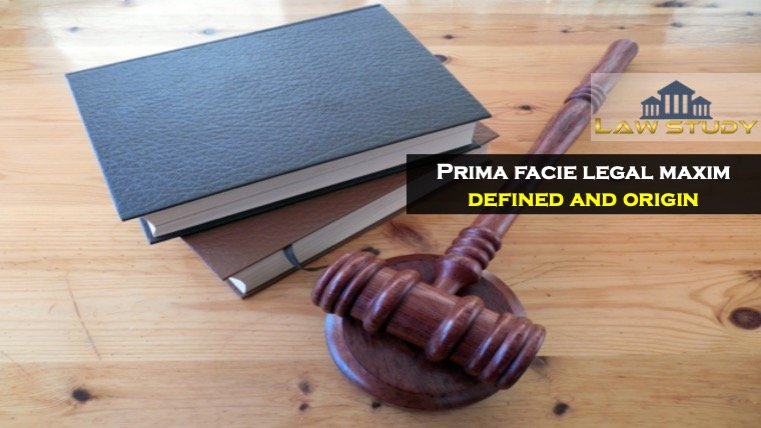Introduction of the Prima facie legal maxim: – The term comes from Latin and it signifies “the case at first sight“. As the phrase implies, it is a preliminary assessment of a case to see whether there is enough proof to proceed with a trial. A party with the burden of proof makes a prima facie case when it produces enough evidence to justify a verdict in favour of the party, provided the opposition party does not rebut or oppose it.
By doing so, the party bearing the burden of proof has demonstrated that it is possible for him or her to meet it with regard to each component of the case. A motion for a verdict in favour of the opposing party may be made when the party bearing the burden of proof cannot establish a prima facie case and hence cannot prevail.
A successful presentation of a prima facie case does not imply that a party will win. The opposing party may subsequently present evidence that opposes (rebuts) the other party’s prima facie case. The burden of the proof party then has the opportunity to challenge the rebuttal evidence.
Prima facie legal maxim: Defined and Origin
Prima Facie is a Latin phrase used in law. The proverb literally means “on the face of it“.
Explanation
Unless it is refuted or disproved, prima facie can be used as an adjective to describe something that appears to be true. It is the establishment of a rebuttal assumption that constitutes a preliminary case. The preliminary action is a cause of action or defence that, if not opposed by the opposing party, provides enough evidence to support a ruling in favour of one party.
Application
A plaintiff initiates a lawsuit in civil litigation claiming that the defendant’s actions (or inactions) caused the injury and damage. For instance, a company may allege that one of its suppliers breached a contract when an order failed to arrive, causing the company to lose clients.
The complaint submitted to the court includes a general description of the cause of the action, the sort of damage, and any potential respondent involvement in the damage. The court must decide if there are sufficient reasons for the matter to proceed before a trial. The judge may decide that there is enough proof to create a rebuttable presumption in favour of the plaintiff at the preliminary hearing’s initial review of the petition. As a result, this situation is regarded as prima facie evidence.
A prima facie case would exist if, during a murder trial, the prosecution produced video footage of the accused uttering death threats to the deceased victim. This would prove that the accused had the intention to kill the victim.
Conclusion
When the plaintiff has the burden of proof in a civil case, prima facie is frequently applied. Unfortunately, just because a case has been resolved prima facie does not mean that the plaintiff will prevail. If the plaintiff fails to present adequate evidence to support their claim, the court will most likely dismiss the suit.
Frequently Asked Questions
Q. What does “prima facie” mean in legal terms?
Ans. When the prosecution has sufficient evidence to proceed with a trial of judgement and establish the defendant’s guilt, the phrase “prima facie” is used in legal contexts. The expression is a translation of a Latin word that means “at first vision” or “at first sight.”
Q. What does a prima facie case mean in India?
Ans. A Prima facie case denotes that the plaintiff has a case that should be considered and is not immediately liable to be dismissed.
Q. What exactly is the prima facie duty theory?
Ans. A prima facie responsibility is one that is binding (obligatory) unless it is superseded or overridden by another duty or duties. Another way to put it is that where there appears to be a prima facie responsibility to do something, there is a strong presumption in support of executing.

























